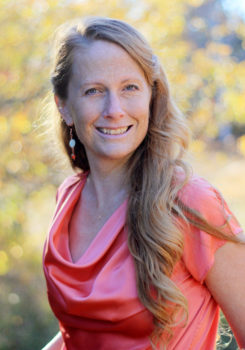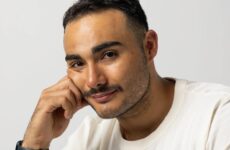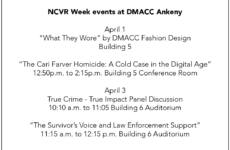
Heather Tisdale
Note: This interview has been edited for length and clarity.
What colleges did you attend?
I attended St. Olaf (in Norway) for my undergraduate work, where I focused on philosophy and political science and women’s studies, and because I’d studied over there, I went on to join the Peace Corps. And this was the time that the wall was coming down. I was placed in a remote village in Hungary where no one spoke my language. I loved teaching there so much, and I loved languages. So I decided to study linguistics at Iowa State University right after that experience. Then I had about 20 years of teaching at various colleges and universities across the United States. I also taught at Microsoft. But then after all of those 20 years, I decided to go to Michigan Technological University for my Ph.D., which was in rhetoric, theory and culture.
What classes do you teach?
Right now this semester, I was asked to teach English 105. So Comp I and English 106, Comp II. But I have also taught courses like literature, some children’s literature, young adult literature. I was hired, in addition to teaching the Comp courses, to teach some of the developed developmental writing courses, like 060 and 061. Years ago, I had created an entire developmental writing program at another college where I worked. So I have a passion for working with students at that level, because so many of them come in doubting themselves, and they come out with a lot of confidence and ready to go on and do great work.
Why did you choose to go into English instead of other subjects?
People, for years, had told me ‘Don’t become a teacher, don’t become a teacher.’ But I always gravitated toward that field. I loved English. In high school, I had the best English teacher ever, and she made even grammar fun. I developed strong writing skills because of her. I always loved writing in general, and I liked languages. So when I was over in Hungary, with the Peace Corps, and I was learning how to teach all these different methods to use, oh my gosh, I love going to work every day, this would be great to do the rest of my life.
And so I enjoyed English in particular, because you have like the blend of creator and editor. So like when you sit down to write, you can just get out all of your ideas and be as creative as you want.
Favorite and least favorite part of your job so far?
The least favorite is, I want to give my students everything. And so, I’m a single mom. And when I go home, I need to give my kids everything, of course I want to. And so there aren’t enough hours in the day to do everything I want to do. So, the time limit is really, you know, bothering me on a daily basis, because I just, there’s so much I want to do with my students. But my favorite aspect … I’ve worked with a lot of students, a lot of different institutions. But I’ve been really pleased and excited to come to the DMACC and see the students who are very engaged. And so many of them come up to me after class wanting to work on shaping their ideas, and, get my feedback. So I’m really excited about their enthusiasm. That’s kind of been giving me a lot more energy.
Most challenging thing that you’ve done in your field so far?
It’s hard because I don’t view anything as being too challenging. For me, balance is always something that I’m struggling with. But the aspect of my career that has been the most challenging was when I went back in my 40s for my Ph.D., and, you know, I was trying to apply all this great knowledge that I’ve been teaching for years, all the great strategies. But when I was working at the Ph.D. level, we’d have to read 100 pages in one night. We had several classes where we were expected to do the same amount.
So for me, what was really hard was finding time to reflect on all of that information, like, what did it mean in terms of my own life? And how would it shape me? And how could I apply it to my teaching? So it got me thinking about my own students, and many of them are taking three-plus classes. And they have one, if not, two, part time jobs, some of them have families, and just how they’re doing that, it’s balance in general is tough for all of us. But in education, finding the time to reflect is a real struggle and the reflection is what will lead to transforming us in terms of knowledge in the future.
If you could pass any words of wisdom with your students, what would you share?
I guess I’m coming at this from someone who has lived half their life already.
You know, elderly people have told me these things over the years, and I didn’t listen very well. So I don’t know, I hope that this will mean something to people. But to really be in the moment, when you are learning, to really try to connect with knowledge, because it’s a gift really, in our society to be able to learn, to be able to sit back or walk around and do experiments and interact in the classroom situation.
When I was living in Hungary in eighth grade, the students over there had to determine what they’re doing with the rest of their lives. Here in the United States, that’s one reason I like working at a community college is because I have students of all different ages, and even like 40 to 50-year-olds who come back and they’re redefining their goals and their direction. Even if knowledge or whatever you’re learning might initially seem meaningless. Try to be intentional about interacting with that classroom information, imagining where that might lead to being open to the knowledge because it might lead you in some really creative directions and certainly, it will help you become more marketable and while your potential employers lead you to the career, that’s your dream job.





Comments